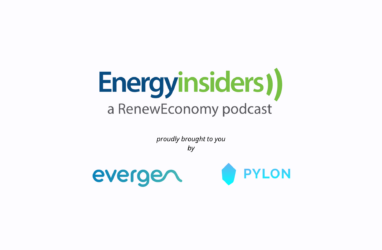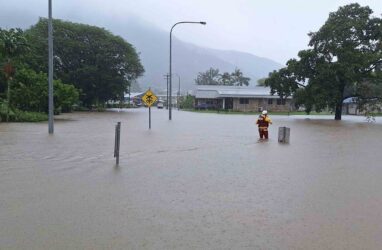Feed aggregator
Not just bees and butterflies: beetles and other brilliant bugs are nature’s unsung pollinators
Majority of New Zealanders support mix of domestic, intl cooperation to met NDCs, govt polling suggests
The unexpected knock-on effect of Trump's minerals 'deal of the century'
Energy Insiders Podcast: Donald Trump’s war on climate, energy and science
The post Energy Insiders Podcast: Donald Trump’s war on climate, energy and science appeared first on RenewEconomy.
Baby wombat grabber Sam Jones leaves Australia after intense backlash including from PM and immigration minister
Montana-based hunting influencer flies out of Australia on Friday after home affairs minister said he couldn’t ‘wait to see the back of this individual’
A US hunting influencer who caused outrage in Australia after from its mother has left the country after the home affairs minister, Tony Burke, said immigration authorities were checking if she had breached the conditions of her visa.
A government source told Guardian Australia that Montana-based Sam Jones had left the country on Friday morning.
Continue reading...US think-tank estimates IRA costs upwards of $2 trillion by 2035, recommends full repeal
CBAM threatens European technology sector, study warns
Regulatory, financial pressures mount on food industry to slash livestock methane, report warns
Drop in Brazilian sugarcane harvest to tighten market for biofuels carbon credits
CERAWeek: UK developer acquires stakes in two US CCS projects, looks to speed deployment
CERAWeek: Engineered CDR projects more often relying on “financial muscle” of tech companies
US energy corporation targets geothermal eSAF production
“Fossil fuel behemoth:” The climate cost of Australia’s bipartisan addiction to coal and gas
The post “Fossil fuel behemoth:” The climate cost of Australia’s bipartisan addiction to coal and gas appeared first on RenewEconomy.
New US construction technology undergoes emissions testing
Solar battery deal for giant smelter is a stunning game-changer for Australian energy
The post Solar battery deal for giant smelter is a stunning game-changer for Australian energy appeared first on RenewEconomy.






